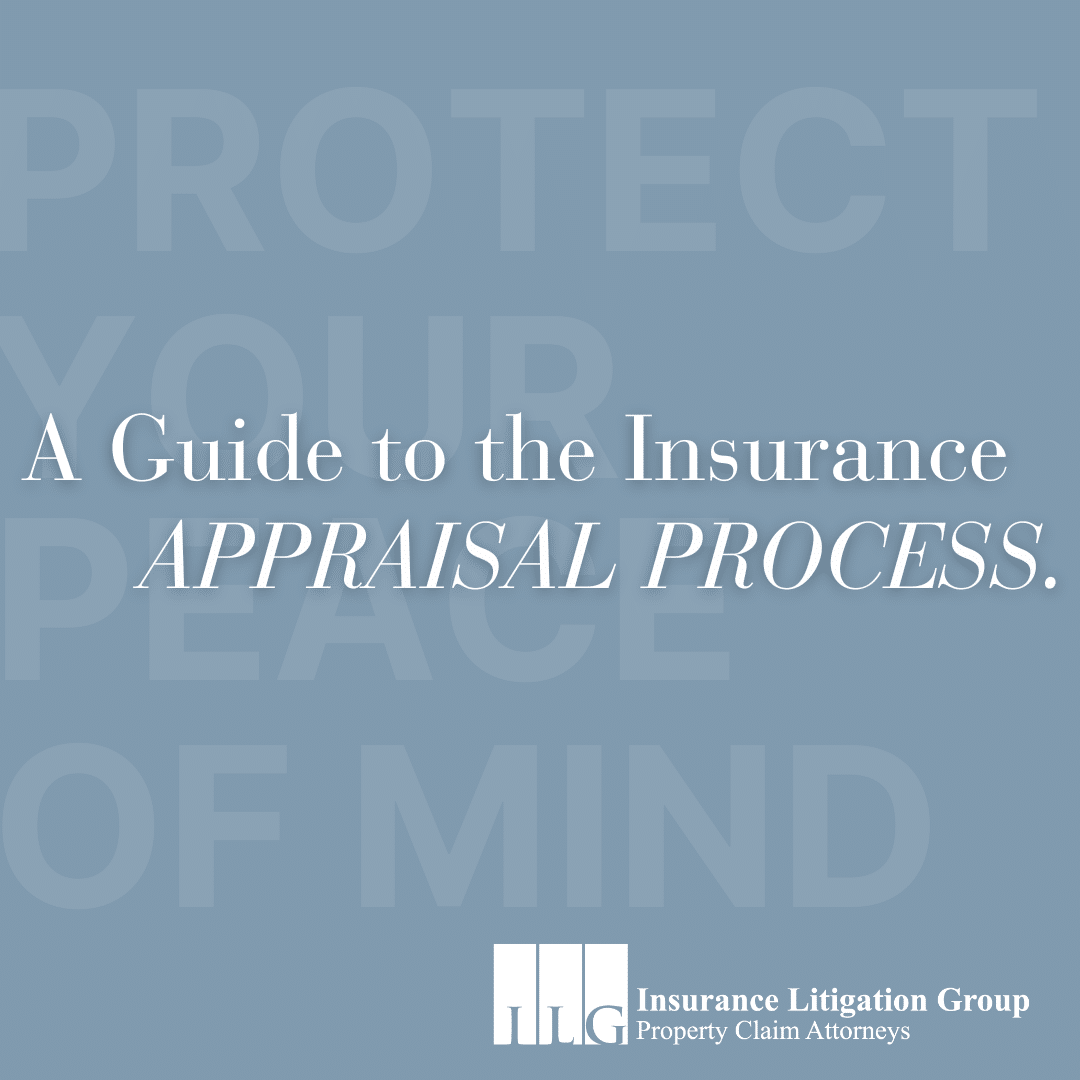When it comes to property damage claims, disputes with insurance companies over repair or replacement costs can be complex and frustrating. However, there exists a valuable mechanism to address such disagreements: the insurance appraisal process. As a policyholder, it is important to understand what an appraisal entails, when it’s necessary, and how it can benefit you.
What is an Appraisal?
An appraisal serves as a formal method for resolving disputes between policyholders and insurance companies regarding the financial amount required to address property damage. It provides an alternative to prolonged legal proceedings, offering a streamlined path to reaching a resolution. Appraisal is not an option in all policies, so be sure to review the terms of your policy to see if it applies to your loss.
When is an Appraisal Needed?
If you file a claim with your insurance company after experiencing property damage (like from a storm or fire) and you and your insurer can’t agree on the amount of the loss, you might use the appraisal process to settle the dispute.
How Does the Appraisal Process Work?
- Demand Appraisal: Either the policyholder or the insurance company can initiate the appraisal process by formally requesting it in writing, adhering to the terms outlined in the policy. The policy will control whether both parties need to agree to enter into an appraisal and will include any requirements necessary to trigger the appraisal process pursuant to the policy.
- Choose Appraisers: Both parties select an independent appraiser. These appraisers are experienced professionals who will evaluate the damage and determine the cost of repairs or replacement.
- Select an Umpire: The 2 appointed appraisers collaborate to choose an impartial umpire. Should they fail to agree, the court may intervene to appoint one, ensuring neutrality throughout the process. The umpire acts like a referee in case the appraisers disagree.
- Appraisal: The appraisers separately assess the damage and try to reach an agreement on the value of the loss. If they agree, the process ends here.
- Umpire Decision: If the appraisers can’t agree, they present their differences to the umpire. The umpire reviews their assessments and makes a final decision.
Final Decision
Any decision agreed upon by at least two of the three parties (the two appraisers and the umpire) is considered binding, determining the amount the insurance company should pay for the claim. Be aware that the appraisal award amount can be reduced by any damages that are not covered under the policy and by any prior payments made by the carrier for that claim.
Benefits of the Appraisal Process
- Quick Resolution: Offers a faster alternative to court cases, ensuring timely resolution of disputes.
- Expert Opinion: Involves professionals well-versed in property damage assessment and repair costs, providing accurate valuations.
- Impartiality: Relies on an independent umpire to uphold fairness and impartiality throughout the process.
Limitations
- Scope of Resolution: The appraisal process only resolves disputes about the amount of loss, not about whether the damage is covered by the policy.
- Risk of Bias: You risk the umpire siding with the opposing appraiser on the damages amounts.
- Cost Sharing: Both you and the insurance company must pay for your own appraiser and share the cost of the umpire.
By leveraging the insurance appraisal process in many circumstances, policyholders can navigate property damage claims with confidence, ensuring a fair and expert-driven resolution to disputes with insurance companies. At ILG, we are client-focused property insurance claim attorneys dedicated to protecting the rights and interests of residential homeowners and commercial business owners alike. With five offices conveniently located across Florida in North Miami Beach, Orlando, Pensacola, Fort Pierce, and Naples, we are well-positioned to assist you wherever you are. Contact ILG today!






